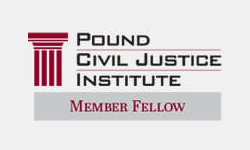After diligently contributing to your 401(k) for years, you may have accumulated a decent retirement fund. You and your spouse probably had plans for what you would do after retirement, and that money was going to help make those dreams a reality.
Then, the unthinkable happened, and you now face divorce. As part of your property division, you need to divide those retirement funds. Your first thoughts may be about how to rebuild that fund quickly so that you can retire, and rightly so. However, you have another issue to address with dividing this account — the taxes. If you aren’t careful, you could end up paying a hefty price for splitting those funds, and it’s completely unnecessary.
Avoiding those taxes and penalties in a divorce
The law provides for dividing qualifying retirement funds and pension plans in a divorce since it is recognized that life happens. The funds qualify as marital property, so something had to give the opportunity for the division of this asset without penalizing the parties. If your retirement plan falls under the Employee Retirement Income Security Act, you can ask the court to issue a qualified domestic relations order, or QDRO. Please note that IRAs do not qualify.
Your QDRO must meet certain criteria before a Rhode Island judge will sign off on it:
- The name and address of the account holder, i.e. you or your spouse
- The intended beneficiary or recipient of funds from the account
- The amount awarded to you or your future former spouse
- The amount, form and frequency of payments to the recipient or beneficiary
You will also need to consult with the administrator of the plan since the QDRO requirements could vary. Skipping this step could throw a monkey wrench into your plans. Moreover, your plan administrator may not get back to you in a timely manner, so the sooner you begin this process, the better. It is crucial that you receive this order prior to moving any funds in efforts to avoid the taxes and penalties that ordinarily come with withdrawals, especially if you are under the age of 59 1/2.
Because a QDRO needs to contain specific information and adhere to certain laws, it would more than likely not benefit you to attempt to create this order on your own. Your plan administrator may offer you a form, but it may be inadequate depending on the details of your divorce settlement. You could use it as a guide, but that may be the extent of its usefulness. A tailored order would better suit your needs.










